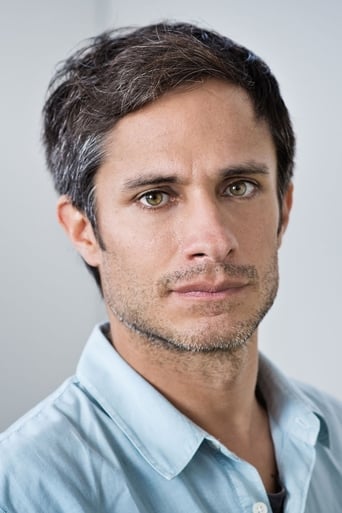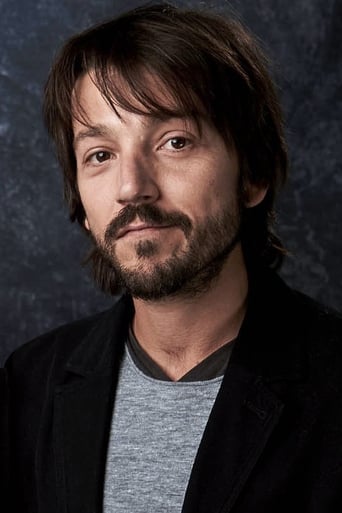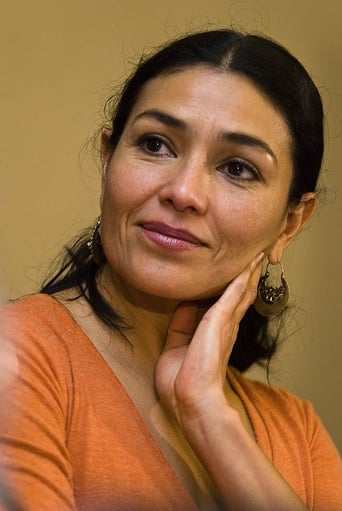ihrtfilms
This Mexican film follows two working class brothers who are catapulted into fame when they become soccer stars. Their skills as footballers are obvious, but the heights of fame, as we are often told, can come with a price. One brother seems to handle it better, whilst the other discovers drugs and gambling.It's perhaps a story we have seen before in one guise or another and this felt very formulaic. I just couldn't be get involved in the story because of this. I might not be a sports fan or indeed a soccer fan, but whilst I'm sure you would enjoy the film slightly more if you were, the film isn't so much about the football, but about the brothers and their rise and fall.The film looks good, it's beautifully shot and there are quite nice performances from the leads, Diego Luna and Gael Garcia Bernal, who lets face it is always good and cute as well, but for me there wasn't enough depth to the story which seemed to skim through the motions leaving me unsatisfied. The highlight is the video of Gael Garcia Bernal singing some cheesy pop song.More of my reviews at iheartfilms.weebly.com
Chad Shiira
Against the backdrop of a professional women's baseball league, Penny Marshall's "A League of their Own" is best remembered for its sibling rivalry between wartime sisters Dottie(Geena Davis) and Kip Keller(Lori Petty), who goes head-to-head in the big game, a prerequisite of the inspirational sports film that completes the genre's form. Disparate from John G. Avildsen's "Rocky", and other movies of its ilk, in which nobody would have mourned Apollo Creed(Carl Weathers) had he lost, Marshall's film is unique because you're divided, happy as you are for Kip, the moviegoer also sympathizes with the loser(well, that's what the film is calibrated for), Dollie, who drops the ball after Kit blows off the third base coach's signal to stop, and proceeds to run roughshod over her sister in a violent homeplate collision. After all, Dollie was responsible for Kip's career. Similarly, in "Rudo y Cursi", it's the loser you feel for, Tato(Gael Garcia Bernal), whose penalty kick is blocked by his brother Beto(Diego Luna), who unlike Kip, loses too, while seemingly the victor, because he was supposed to throw the game. In both films, albeit circumstantially different, there are no winners where a winner is the genre norm. "Rudo y Cursi" is a sports film without catharsis, which puts this Mexican import in the same league as Antonio Cuaron's recent "Sugar", another underdog sports story that ends on a decidedly different key from its Hollywood counterparts.Neither Davis nor Petty(or Madonna for that matter) had a lick of baseball talent, but through the magic of rhetorical editing(quick cuts), wishful thinking prevailed, and the audience became co-conspirators in the fiction that Davis could swing for the fences with regularity, while Petty took the mound with an arsenal of effective pitches. In "Rudo y Cursi", when Batua the scout(played by Gullimero Francella) gauges the brothers' potential in a pick-up soccer game, he's the only witness, because the camera stays on him, having a cold one. This directorial choice is made time and time again, a self-reflexive and humorous aside about actors faking athletic greatness, as the moviegoer never actually sees Tato score a goal, nor Beto successfully defend the net; the moviegoer sees reaction shots, instead of first-hand accounts of athletic mimicry. There's no need for a double to do the tricky stuff(e.g. Moira Kelly and D.B. Sweeney's doubles in "The Cutting Edge"); there's nobody to double for. The montage, the most expedient way to persuade the audience that the actor is excelling at his/her sport(best recent example: Hillary Swank in Clint Eastwood's "Million Dollar Baby"), gets parodied in a scene where the soccer ball in quick succession, hits the back of the net from the off-screen leg of Tato, kicking in the negative space. When the benchwarmer finally sees some game action and scores his first goal, the moviegoer sees his family, in unison, shouting, "Goal!" instead of Bernal putting his best foot forward, literally, in a diegetically enhanced fantasy camp for actors. Not satisfied with only its atypical approach towards depicting sports in a sports movie, "Rudo y Cursi" is no etnography(like Gregory Nava's "El Norte", or "Mi Familia"), in which a western audience expects Tato and Beto to act in an explicitly prescribed way.More likely than not, the filmic norm of "wetbacks" in most narratives about the Hispanic culture, shows its people as the conscientious sort who send money back home to their destitute families they left behind. Arguably, in "Rudo y Cursi", the brothers go "gringo", as Tato lavishes his high maintenance girlfriend with exorbitantly priced gifts(for starters, a SUV), while Beto gambles his money away at back-room casinos. Where's mama's SUV; where's mama's house, the one that her sons promised to build for her? Mama does eventually get the house of her dreams, but not from her American-like sons. Like Ridley Scott's "American Gangster", mama gets her house from a gangster, her daughter's husband. Tato and Beto are people like us: Americans, "football" players who have American football player counterparts.(Tato could be Tony Romo, a player distracted by her excessively attractive celebrity girlfriend, while Beto could retired quarterback Art Schlichter, who had a severe gambling problem while throwing passes for the Baltimore Colts in the early-eighties.)
moviemanMA
In 2001, Gael Garcia Bernal and Diego Luna starred in Y tu mama tambien, a film I would place in the top ten for this decade. Their dynamic on screen was palpable. The combination of a their performances as well as a gripping story from the Cuaron brothers, Carlos and Alfonso. Alfonso directed the film and went on to direct Harry Potter and the Prisoner of Azkaban and Children of Men, the latter being a gem. Now, Carlos has taken the reigns as director for his first feature with Rudo y Cursi.He reuintes with his Y tu mama stars Bernal and Luna, who have had stellar careers since 2001. Here they play brothers in a small Mexican town who dream of one day leaving and making it big. Beto (Luna) wants to become the greatest goalie in the country while Tato (Bernal) wants to be a singer, but can play soccer better than he can sing. They are discovered by Batuta (Guillermo Francella) during one of their games and offers one of them the chance of a life time: to become a professional football player. The scene to decide who gets to go is one of the best in the film, so I won't ruin it.The majority of the film centers on the two brothers trying to fulfill their dreams but struggling along the way with gambling, women, and the sport they love. What I love so much about this film are the characters of Beto and Tato. They are so developed. You can tell exactly what their life has been life without knowing too much about them. They are simple folk and talk as such, regardless of how rich or destitute they become. Cuaron makes this unbelievable story as believable as possible, throwing the characters curveballs, much as life does.Luna and Bernal work so well together. They look nothing alike yet I believe that they are brothers here. There is a scene where Luna is very upset with his brother and venting about it to his wife, but when she chimes in and talks down about Bernal, Luna tells her not to speak about his brother like that. It's the little things that they do that give their characters depth and feeling.Cuaron uses narration throughout the course of the film, much like he did with Alfonso in Y tu mama tambien. This narrator however has an identity (Batuta) while in the other film it is anonymous. I think I would have liked it better that way or simply done without. The anonymous narrator can bring some interesting details and histories to the story, almost like watching a documentary. This narrating is bias and doesn't get quite as personal. It could have been dealt with in a better manner.Although Carlos has been involved with several movies, I was very impressed with his directorial debut. Some people are born screenwriters, but step behind the camera and things fall apart. Luckily for us Carlos is multi talented like his brother. There are some very nice scenes here with solid camera work. One particular shot of the two brothers sitting across from each other at a table was beautiful in my opinion.After the film was over and the credits began to roll, I happened to notice the names under the "Produced by" title. They were Alfonso Cuaron, Alejandoro Gonzalez Inarritu, and Guillermo Del Toro. They recently made a production company called Cha Cha Cha films. These three filmmakers won world wide acclaim in 2006 when they each released brilliant pieces of cinema. Cuaron with Children of Men, Inarritu with Babel, and Del Toro with Pan's Labyrinth. A pretty impressive threesome to have on your film's credits. I was impressed.Rudo y Cursi is a very satisfying film for those who aren't looking for a typical story. Some might get mad at the ending but that's understandable. Such is life. Not everybody can be happy. I guess that's the film's underlying message that if you accept what life has dealt you, happiness will come to you.






